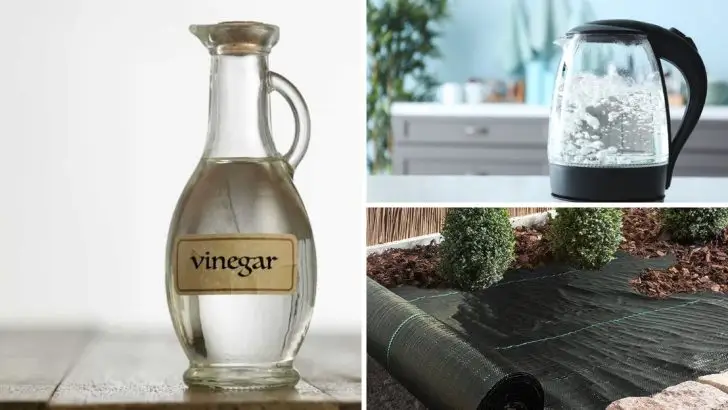Weeds have a sneaky way of showing up exactly where you don’t want them—especially in gravel. That neat, low-maintenance surface can quickly turn into a patchy mess if weeds start to take hold. It’s frustrating, especially when you’ve already spent time and money getting your outdoor space just right.
The good news? There are solid ways to deal with them that actually work, without turning your yard into a chemical battlefield. From simple manual tricks to longer-term prevention methods, this guide lays out practical steps you can take to keep your gravel weed-free—and keep it that way.
Vinegar Solution

Vinegar, a natural herbicide, can be your garden’s best friend. Simply pour or spray it directly onto the weeds to dehydrate them. The acetic acid in vinegar works by drawing moisture from the weed’s leaves, effectively drying them out. While it’s an eco-friendly option, take care not to spray on nearby plants, as it doesn’t discriminate. For stubborn weeds, reapply every few days until they succumb. Pair this method with hand pulling for the best results. Vinegar offers an inexpensive, chemical-free way to keep your gravel pristine.
Boiling Water
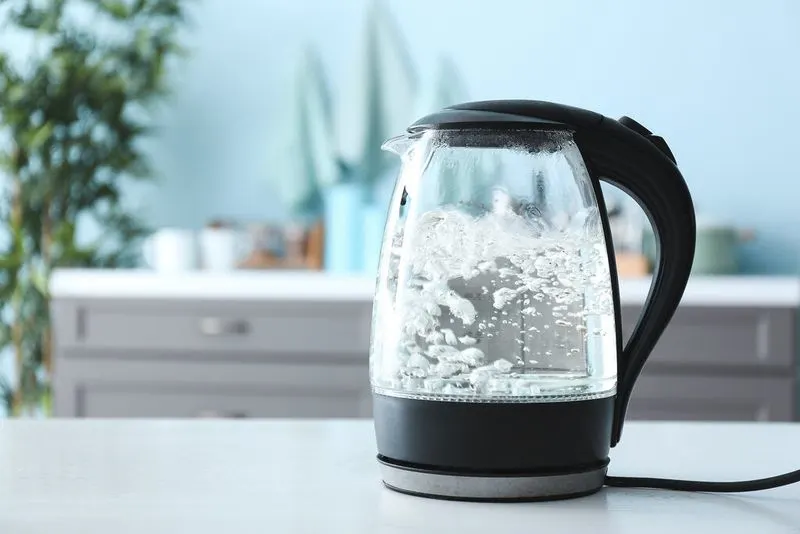
Boiling water is an immediate and effective way to kill weeds. The extreme heat shocks and destroys the plant cells, leading to wilting. It’s a simple method requiring no chemicals, making it perfect for eco-conscious gardeners. Pour the boiling water directly onto the weeds, ensuring you cover the roots. Be cautious around desirable plants, as hot water can damage them too. This method suits small infestations and hard-to-reach areas where tools can’t reach. Remember to wear protective gloves to avoid scalding.
Salt Application
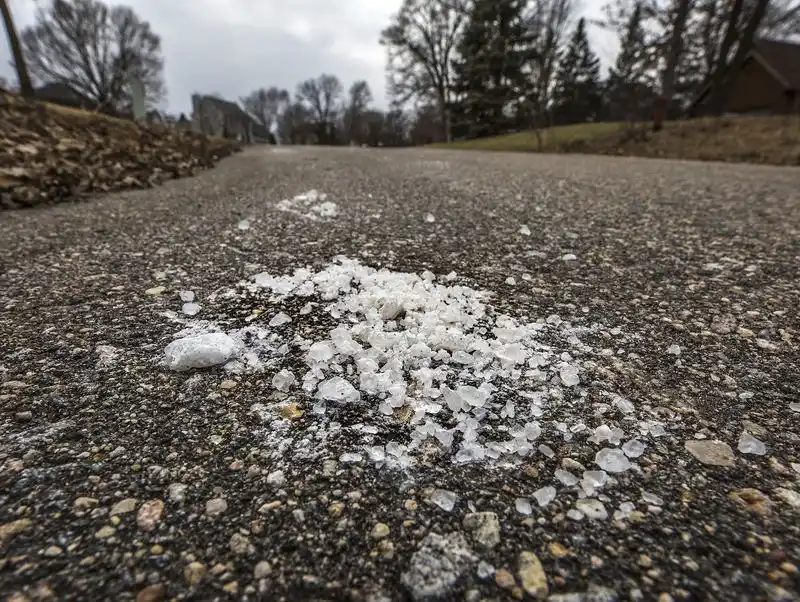
Salt is not just for seasoning; it can also prevent weeds. When applied to gravel, it dehydrates and kills unwanted plants. Sprinkle salt directly onto the weed-infested areas, and let it work its magic. However, exercise caution, as salt can also harm nearby vegetation and alter soil chemistry. Use sparingly and avoid runoff into garden beds. For best practices, combine salt with sand, which slows down absorption and reduces environmental impact. This simple measure can maintain your gravel’s appearance effectively.
Landscape Fabric
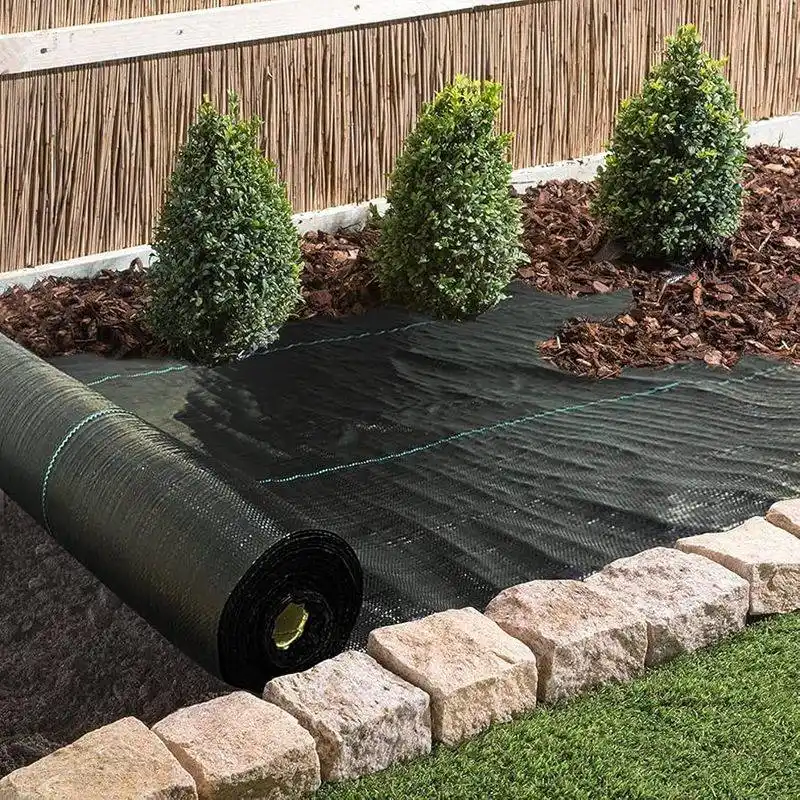
Landscape fabric serves as a physical barrier to prevent weeds. By blocking sunlight and smothering growth, it stops weeds before they start. When installing, ensure the fabric covers the entire area and overlaps at the seams. Secure it with landscape pins, then spread the gravel evenly. This method works well for new installations or major renovations. While effective, it requires initial investment and labor. Over time, debris buildup may encourage weed growth, so regular maintenance is key. A well-laid fabric can extend your gravel’s lifespan.
Corn Gluten Meal
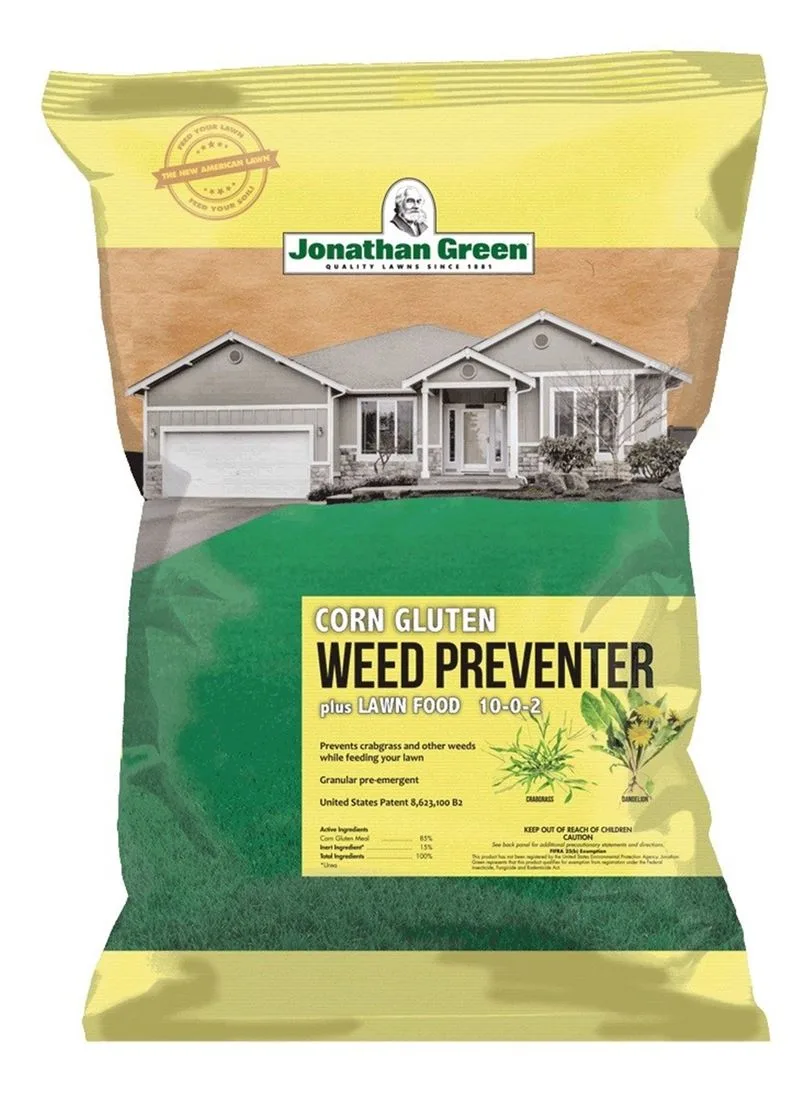
Corn gluten meal acts as a pre-emergent herbicide by inhibiting root formation. Apply it in early spring before weed seeds germinate. Spread evenly across the gravel and water lightly. Safe for pets and wildlife, corn gluten meal provides a natural alternative to chemical herbicides. It’s particularly effective against annual weeds. Reapplication every six weeks ensures continued protection. Though it won’t kill existing weeds, its preventive action helps maintain a clean gravel area. A nutritious byproduct of corn processing, it doubles as a mild fertilizer.
Hand Pulling
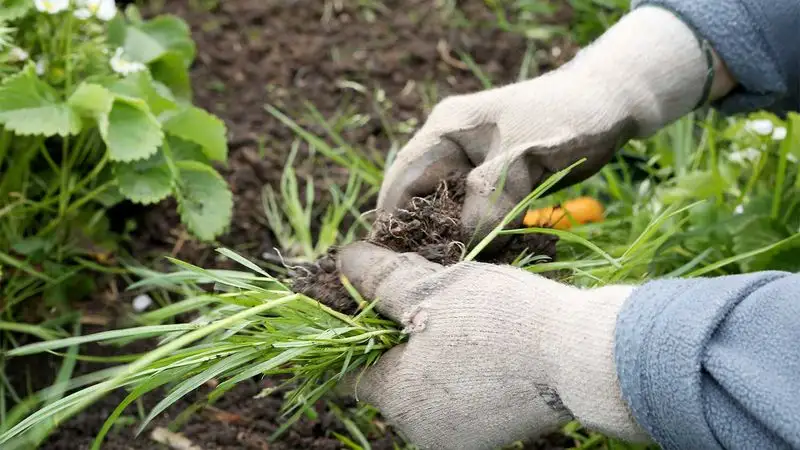
Hand pulling remains one of the oldest and most straightforward weed control methods. It allows you to target individual weeds and remove them completely. For best results, pull after rain when the soil is moist, ensuring you extract the root. Use gloves and a small trowel for deeper roots. While labor-intensive, it doesn’t risk harming nearby plants. Ideal for small areas or minimal infestations, hand pulling offers immediate results. Regular sessions prevent weeds from establishing a foothold. Embrace this time-honored practice to maintain tidy gravel paths.
Chemical Herbicides
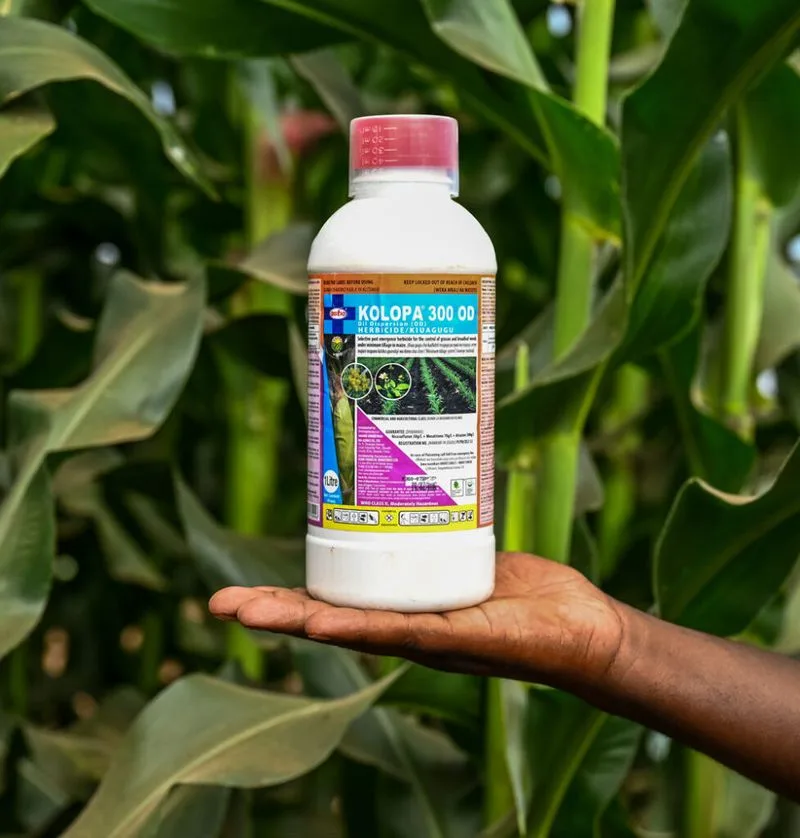
Chemical herbicides provide a powerful option for severe weed issues. They target the root system, ensuring the weed doesn’t return. Select a product labeled for gravel use, and follow instructions carefully. Apply on a dry, windless day to prevent drift onto desirable plants. Although effective, consider environmental impact and safety precautions. Wear protective clothing, and keep pets and children away during application. Use sparingly and only when necessary. For a balanced approach, combine chemical use with preventative measures. This ensures sustainable weed management.
Mulching
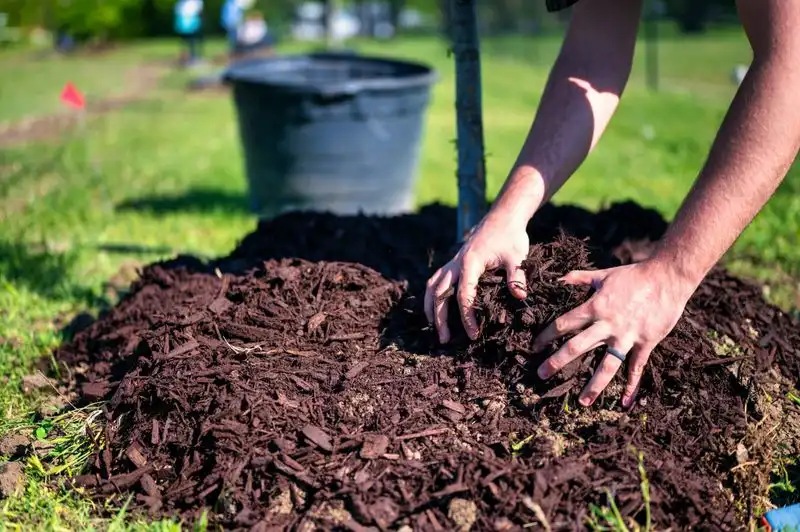
Mulching over gravel provides an extra layer of weed prevention by blocking sunlight. Organic mulches like wood chips or straw decompose over time, enriching the soil. Apply a thick layer, ensuring complete coverage. While it requires regular replenishment, mulch enhances appearance and reduces weed growth. For decorative gravels, consider a thin, contrasting mulch layer. This method suits diverse garden aesthetics while supporting healthy soil ecology. Mulching complements other strategies, offering a comprehensive approach to weed control. Embrace this natural method for a lush, weed-free garden.
Flame Weeding
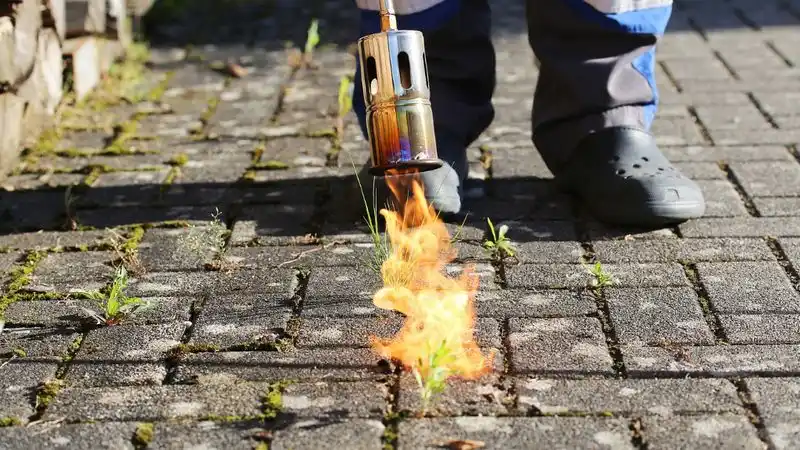
Flame weeding offers an exciting, albeit unconventional, means to tackle weeds. By applying intense heat, it wilts and kills weed cells instantly. Use a portable flame torch, moving steadily across the target area. Ideal for gravel paths, it leaves no chemical residue. Exercise caution around flammable materials, and wear protective gear. Perfect for larger areas and persistent weeds, flame weeding requires minimal effort. Regular sessions maintain a clean, weed-free surface. Utilize this method for quick, environmentally friendly results, adding a spark to your gardening routine.
Alcohol Spray
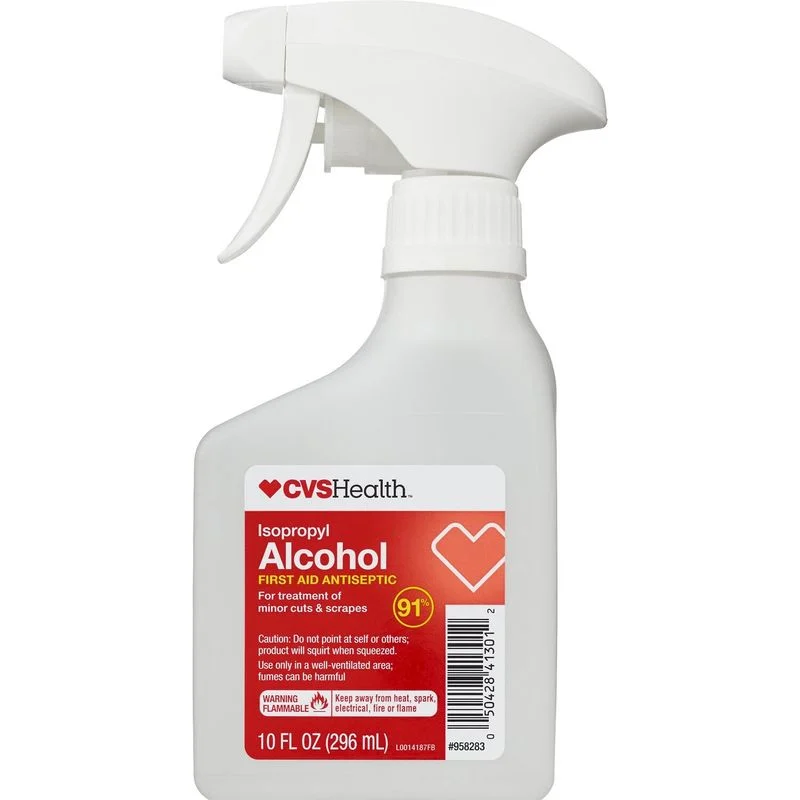
Rubbing alcohol isn’t just for first aid—it’s an effective weed killer. Mix alcohol with water in a spray bottle, and apply directly to the weeds. The alcohol dehydrates the plant, causing it to wilt. This method suits small infestations and is safe for pets and humans. Avoid spraying on desirable plants, as it can cause damage. Reapply every few days for persistent weeds. This cost-effective solution offers quick results without harmful chemicals. Keep a bottle handy for those unexpected garden nuisances. Enjoy a weed-free gravel path with minimal effort.
Baking Soda

Baking soda acts as a natural herbicide by increasing salinity, which dehydrates weeds. Spread it liberally over the affected areas, focusing on weed clusters. This environmentally friendly option provides quick results. Safe for pets and children, baking soda offers a non-toxic alternative to chemical treatments. However, avoid overuse near desired plants, as excessive salinity can harm them. Use in conjunction with other methods for lasting results. Regular applications ensure weeds don’t reestablish. Embrace this simple pantry staple for effective weed control in your gravel landscape.
Soap Spray
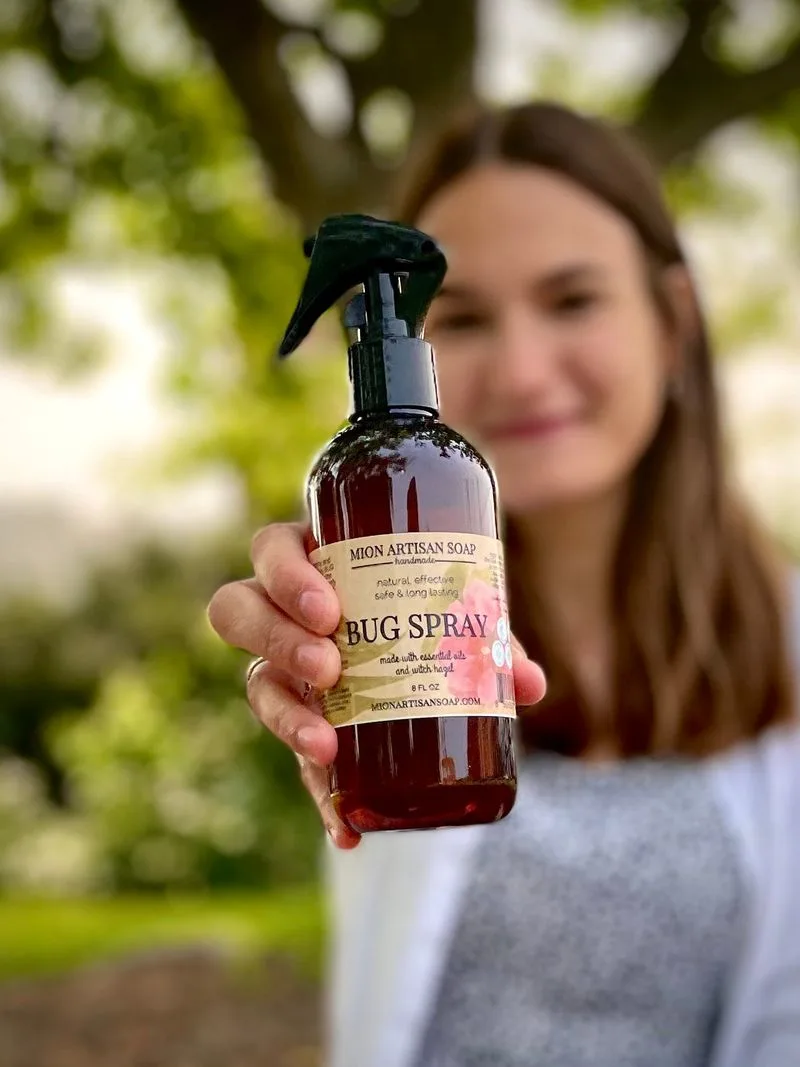
Soap spray disrupts weed cell membranes, causing them to dehydrate. Mix liquid dish soap with water in a spray bottle. Apply directly to the weeds, ensuring thorough coverage. It’s an inexpensive and biodegradable option, safe for the environment. Best used on sunny days when heat accelerates drying. While effective on small infestations, soap spray may require repeated applications for tough weeds. Combine with physical removal for comprehensive control. Embrace this accessible method for maintaining pristine gravel areas. Delight in your garden’s tidy appearance, free from persistent weeds.
Proper Drainage
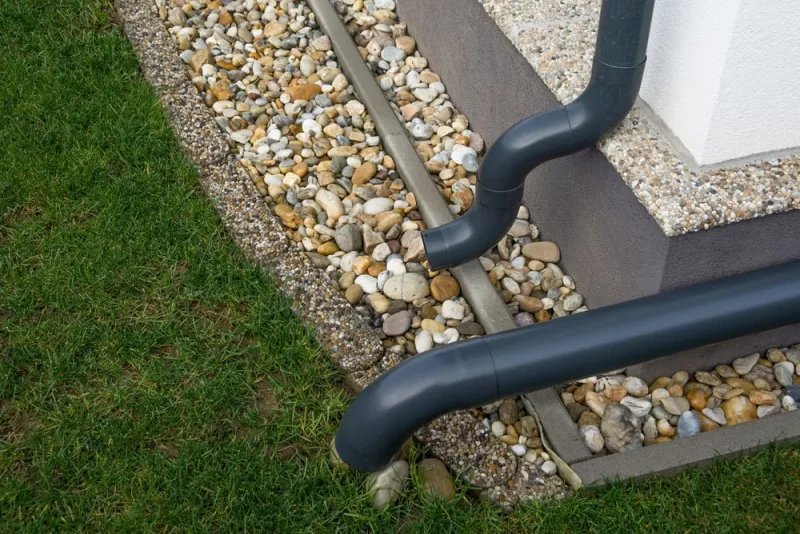
Proper drainage serves as a proactive approach to weed prevention. By ensuring water flows correctly, it reduces the likelihood of weed-friendly conditions. Start by sloping gravel surfaces to encourage runoff. Incorporate French drains or swales for larger areas. These measures prevent water pooling, which often leads to weed proliferation. Pair with regular gravel raking to disturb emerging weeds. This foundational strategy supports other control methods, ensuring your gravel stays weed-free. Invest in drainage improvements for lasting benefits. Maintain a functional and visually pleasing gravel landscape without the hassle of weeds.
Regular Maintenance
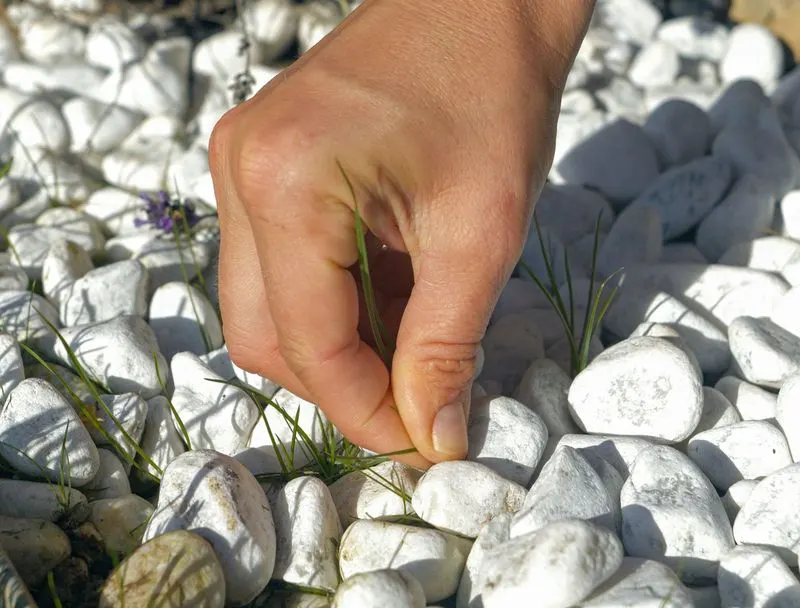
Regular maintenance remains crucial in the battle against weeds. Consistent inspections and timely interventions keep the problem at bay. Start by raking the gravel to disrupt emerging weeds. Follow up with spot treatments using natural or chemical options. Schedule routine checks, especially after rain, to catch new growth early. This proactive approach prevents weed establishment and minimizes labor later. Combining vigilance with diverse control methods ensures a clean gravel area. Embrace maintenance as a rewarding part of your gardening routine. Enjoy the satisfaction of a beautifully maintained, weed-free environment.

